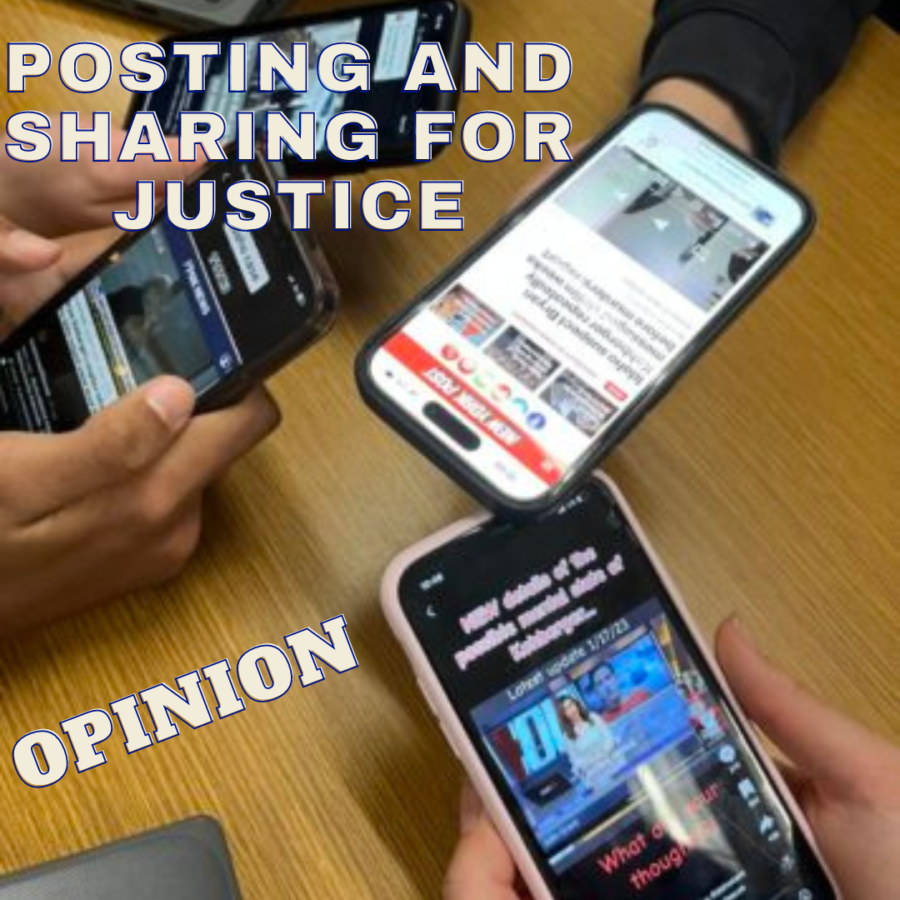Opinion: Posting and sharing for justice
Students at OHS are fascinated with uncovering the Idaho case using social media.
January 19, 2023
With the nation wide commotion surrounding the recent Idaho stabbing murders, a devastating tragedy that left four University of Idaho students dead on Nov. 13. Immediately following the murder, TikTok and other social media platforms were flooded with conspiracies made by people trying to solve the murder themselves. As the FBI was trying to uncover the case with no known leads they decided it was best to keep the public out and their business private. Many questions have arisen within the case following the arrest of a suspect and release of key information by police.
Tik Tok has become a popular social media platform, and in this case it was used for further investigation purposes. Local residents began coming forward with possible alibis and pinpoints of what they believe was the answer to the murder case. This got in the way of the FBI’s role in the ongoing investigation when people who are associated with Tik Tok and other social media platforms perceived this case like a crime show and put themselves in as the investigators.
People were fascinated with uncovering the truth and it ultimately consumed social media pages all over the U.S. The emotional investment in gruesome cases displayed can be tied in with Americans’ obsession with true crime. People who have no real involvement within the case often feel they are entitled to the raw details that come within the personal tragedy. The public is treating this case as a game which stems from one’s own fear or curiosity. The horrific whereabouts of cases as brutal as these alter many people’s sense of security, where they look for answers in the crime itself to gain control in their life. Many people believe sharing and posting the murders online will bring justice to the victims, which can be a flashback to the Gabby Petito case where locals helped solve the case.
On Dec. 30, Bryan Kohberger was arrested and charged for the alleged murder of the four University of Idaho students which brought closure for the public and everyone involved within the social media platforms. Kohberger is a PhD student in criminal justice. It is theorized that his level of education and of criminal justice allowed him to know how to work the system. Kohberger was seen weeks in advance, outside the Pennsylvania home where his parents resided, wearing surgical gloves throughout his day; to ensure his moves pertaining to the alleged murder were left untraceable. He had been suspected to be casing the house for months and with his criminal justice experience he knew exactly how to get away with the crime. As the investigation continues the motive of the assailant remains unknown but the FBI is working to uncover any relationship within the Idaho students.
The technology in the world keeps advancing, and with some complex DNA tests police were able to arrest Kohberger on four murder charges in the first degree. He made his murder almost untraceable except for the suspected knife sheath he left next to one of the girls’ bodies. Police tested DNA left on the knife by Kohberger and were able to match it with his father’s, which was allegedly found in the garbage of the father’s home. Before the murder, Kohberger was seen cleaning the entirety of his car, A white Hyundai Elantra, which was allegedly proposed as his getaway car. During the murder Kohlberger completely shut his phone off which was later prosecuted and checked, where they saw his location circling around the perimeter of the house hours previous to the murders.
Many people believe sharing and posting the murders online will bring justice to the victims, which can be a flashback to the Gabby Petito case where locals helped solve the case.
True crime has evolved as people grow more fascinated with the history of murder cases and the details pertaining to each victim. The audience gets so involved within the case and treats it as a game in their mind without ever considering the victims as real people. Humans have created a negative obsession within true crime by trying to undertake the FBIs role in the investigation and solve the crime themselves. Tik Tok especially is a harbored area or the fascination of true crime to evolve. It is displayed all over the media with videos of what is believed to happen. Kiara Gentz said, “I think it is highly suspicious that the surviving roommates never came forward, was their possibly drugs involved?” this shows how social media has altered the views of the crime itself. The audience is easily influenced by the rumors exploited on social media. This creates false accusations throughout the Kohberger case and creates an uproar across the social media platforms involved.
Although murder mysteries are fun to outside viewers, they do not always need to be shared across social media platforms. Many followers of the story are allegedly blaming the surviving roommates, which is harmful to the mental health of the survivors and everyone involved. This case was almost impossible to figure out, but in today’s world, it is difficult to get away with any crime due to the advanced tech and the hard work done by law enforcement.








